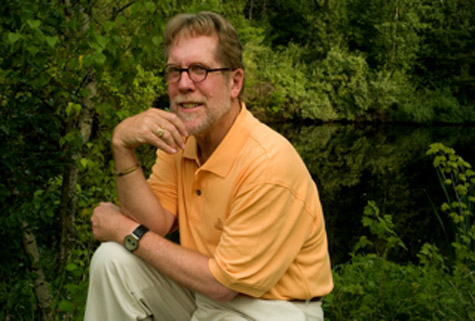
Thomas Cobb |
Storytelling is largely about character, and writer Thomas Cobb came up with a doozy when he conceived Bad Blake. The 57-year-old country singer at the center of Cobb's 1989 novel Crazy Heart works a woeful circuit of bowling alleys and honky-tonks, a beleaguered elder trudging on without the buffers of fortune and respect that marked his early career. The hits are long gone, the frustration is oppressive, and the bourbon is always somewhere close by.
Director/writer Scott Cooper's celebrated spin on Crazy Heart puts all of Cobb's eloquence up on the screen. The depth that Jeff Bridges brings to Bad has been trumpeted by pundits galore; in the last month he has won "best actor" awards at the Golden Globe and Critics Choice shows. His interaction with Maggie Gyllenhaal (as a journalist who offers a ray of salvation) resounds with the kind of nuance that makes the film so emotionally rich. Yep, there's lots of Oscar talk in the air for this low-budget beauty.
Cobb, a creative writing professor at Rhode Island College and the author of 2008's Shavetail, is also enjoying some time in the sun. Out of print for years, his novel has just been republished, and the phone is ringing for interview after interview. He grew up in Tucson, wrote Crazy Heart in Houston, and lives in Foster, where he spends two hours each morning writing in his garage/office.
THE INSPIRATION FOR BAD BLAKE CAME FROM YOUR DAYS AS A COUNTRY MUSIC JOURNALIST IN ARIZONA. It was during the '70s, a time of the country music craze: Gilley's, Urban Cowboy, and all of that. Tucson always had country acts coming through, so I spent a couple nights a week actually working in bars.
WHAT KIND OF TACTIC DID YOU USE FOR YOUR INTERVIEWS? I went out front for the show, mingled with the audience, and then went backstage after the show and talked to the artist. My favorite part was hanging out and observing. I watch better than anything else.
WERE YOU PRAGMATIC ENOUGH TO KEEP AN EYE OUT FOR CHARACTERS FOR FUTURE FICTION PIECES? No, it was more about working the job at hand. I had an MA and MFA from the University of Arizona and I was a published poet. I basically thought of myself as a poet. The music reviewing was a job — I didn't consider it any kind of creative outlet, although I let myself run away with things every once in awhile. I was a bad critic because I wanted to be the new Dorothy Parker. I did terrible things to people.
LIKE WHAT? Moe Bandy and Joe Stampley were working together in the '70s. I reviewed them and closed the piece by saying, "Taken together [these two] comprise almost half a talent." And I was proud of myself at the time. I look back now and I'm embarrassed. The guys were working, they were trying to make a living. They weren't the best, but they didn't deserve that from someone in Tucson.